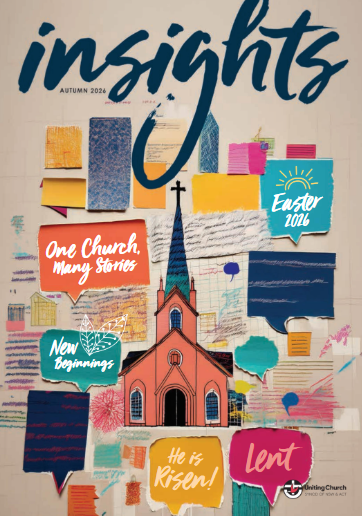The church must take a leading role on climate change action to build the foundations for future generations but it must also seek to rediscover its relevance in a changing world.
And while advocacy was important, the church also needed to play a deeper, more profound role, particularly in rural communities – being the centre of community action, generosity and connection.
This is the charge from Joshua Gilbert, one of three guest speakers to address the Living Church Synod 2019. His address on the second day of Synod set the scene for a day of discussion and discernment for the church on its Climate Action Strategy.
Mr Gilbert is a Worimi man who uses Indigenous wisdom and values, alongside knowledge of agriculture and the environment to better inform society. He is an author and sought after speaker.
His reflections on agriculture and the land are bitter-sweet. His ancestral family – the first recorded birth of his family was in a cave in Gloucester – suffered the brunt of colonisation with his father’s ancestors taken from the land and sent to an orphanage. Many of his people were forced off their land or killed so that agricultural practices could start on their land.
Mr Gilbert is previously the Chair
of the NSW Young Farmers and led the NSW Young Farmers’ Council in moving one
of the first proactive international agricultural climate change motions at the
NSW Farmers Annual Conference in 2015.
The motion gained the attention of former US
President, Al Gore, who asked Joshua to be a part of his Climate Reality
Project. His Climate Reality Project video, entitled ‘Australia’s Young
Green Farmers’, was viewed in over 75 countries and by over 100 million people.
Mr Gilbert also attended the Paris Climate Change summit.
His ancestral stories, research and his experiences have all shaped his views on Climate Change.
Mr Gilbert said the church had a critical role to play today not only in the advocacy on climate change policy, but to create a better future by being at the centre of agricultural communities that were being profoundly impacted by severe weather events.
“It is easy to advocate but I am not sure that is enough. I struggle with groups that only see advocacy as its role. If we get (progressive) climate policy, which I believe we will, these advocacy-only organisations should become redundant, with a future focus on engraining sustainability into everyday action,” he said.
“I believe the church must also play a deeper, more profound role, particularly in rural communities. It must be at the grass-roots providing connection, generosity and comfort to weather-stricken communities, while being a constant during the good times.”
Mr Gilbert said there has been a shift in Australian rural communities in which the church has struggled to maintain relevance, reflective of a changing society across the Nation.
“When the community was thriving it was rooted in church values. People were more generous, supporting each other during hardship and building community during the good years”, he said.
Mr Gilbert said famers tended to harbour optimism in the face of brutal drought or other devastating natural disasters such as flooding. But as the pressures grow this optimism waned, often with disastrous outcomes.
“In rural towns the church needs to be there when people are struggling. It needs to be non-judgemental, a loving and giving centre of the community – connecting people to God.”
In many communities the sense of community needs rebuilding. We have lost the ability to connect and engage as a community. We must recover this and the church can play a central role in bringing unity, healing and connection, Mr Gilbert said.
Martin Thomas





